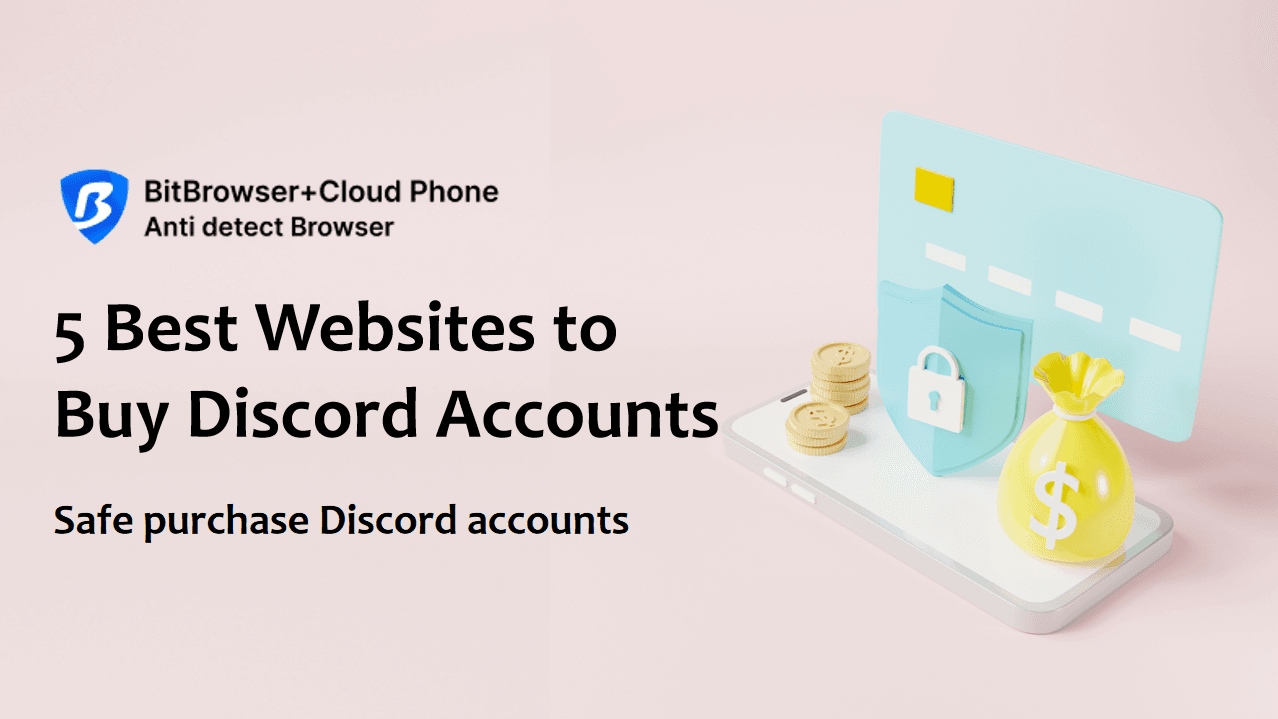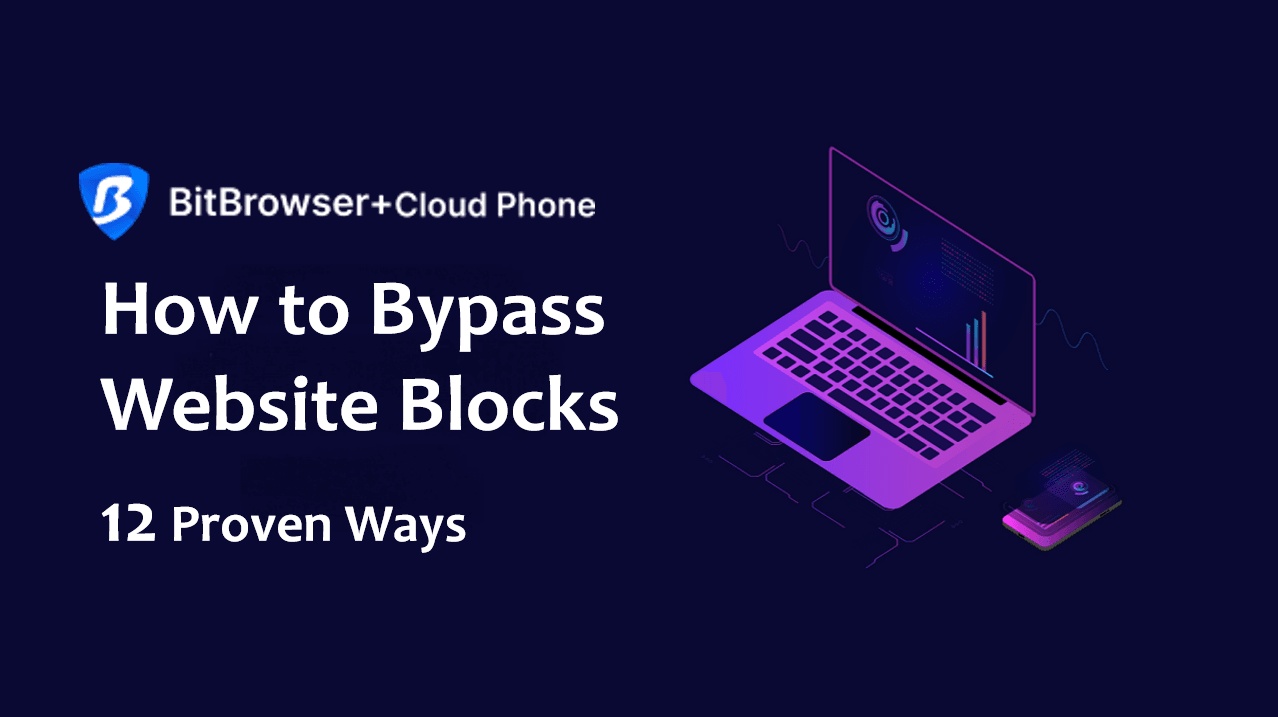
Hot Picks
How to Use BitBrowser for Multiple Bets?

Hot Picks
How to Automate Social Media Accounts
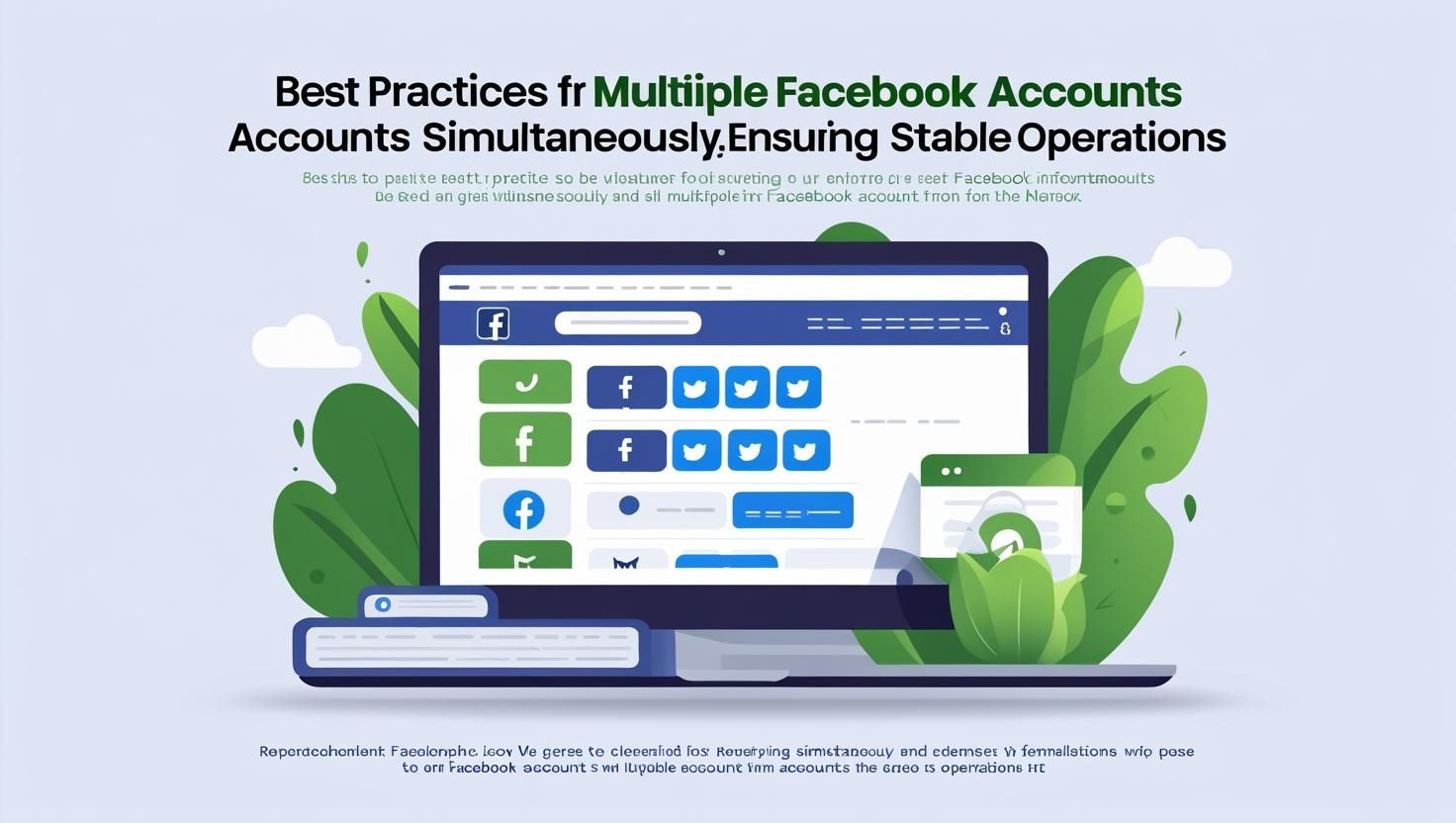
Hot Picks
How to Ensure Stable Facebook Operations When Managing Multiple Accounts
Top 10 Safest Web Browsers to Browse Privately & Stay Untraceable
 2025.03.21 06:05
2025.03.21 06:05Do you know that cyberattacks, data leaks, and privacy violations are becoming increasingly common? Some websites will track your online activities, collect personal data, and even lead to identity theft without your knowledge. This is not an exaggeration, but a reality you may face every day.
This is why using the safest web browser is crucial. It is like a solid shield in the cyber world. It can not only effectively defend against malware and phishing, but also protect your privacy through anti-tracking and data encryption. In the following, this article will walk you through the 10 most secure web browsers to help you find the most reliable protection barrier in a complex network environment.
How to Choose the Most Secure Web Browser?
Most secure internet browsers can block ads and trackers, delete browsing history, and hide your IP address. But if you're seeking a truly untraceable browser, go beyond basic privacy—look for features like IP rotation, fingerprint masking, and advanced anti-detection tools.
Choosing the best secure internet browser depends on your goals:
•Untraceable Browser Use BitBrowser, an anti-detect browser that can change IP, mask fingerprints, and keep multi-account activity private.
•Open-Source Browsers for Customizable Security Try Tor Browser, which routes traffic through the Onion network and lets you audit or tweak privacy features.
•Mainstream Browsers with Extra Privacy Tweaks Use Google Chrome, but adjust settings and add extensions for safer, ad-free browsing.
Part 1. Top 3 Anonymous Browsers for Untraceable Browsing
If your goal is to stay completely hidden online, basic privacy features won't be enough. In this section, we'll explore the most secure browsers for private browsing—tools designed to mask your identity, rotate IPs, and prevent tracking at the deepest level.
1. BitBrowser - Best Anti-Detect Browser for Privacy & Multi-Account Management
Pros: Masks fingerprints per profile · Isolates accounts · Free for 10 profiles
Cons: Not open-source · Slightly complex for casual users
BitBrowser is a secure internet browser built specifically for privacy protection and managing multiple online identities. It combines traditional privacy features with advanced anti-detection technology, allowing users to browse privately without exposing their real IP or identity.
Each profile in BitBrowser can simulate an independent browser fingerprint—including OS, browser version, screen resolution, and more—making every session appear as a different real user. It also supports multiple proxy configurations, letting you easily change your IP address to enhance anonymity and security. For those looking for the safest web browser for Windows with powerful account isolation, BitBrowser is a top-tier choice.
2. Brave – Safest Web Browser for PC with Ad Blocker
Pros: Built-in ad blocker · Built-in Tor private window · Faster page loading · Supports browsing rewards
Cons: Some site compatibility issues · Default UI favors Brave content
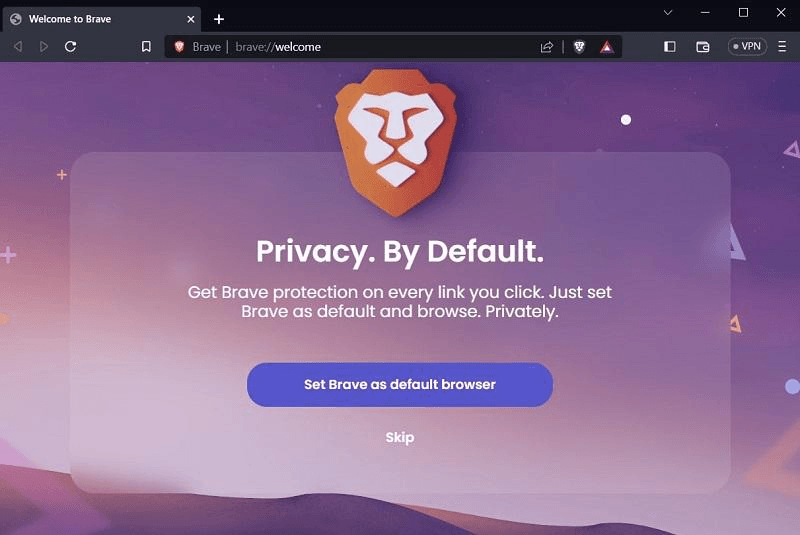
Brave is widely recognized for its strong built-in privacy features, offering users a clean, secure, and efficient browsing experience. Its standout capabilities include an ad and tracker blocker plus browser fingerprint protection, which effectively prevents third-party ads and trackers from collecting your browsing data. Additionally, Brave enforces HTTPS upgrades by default to ensure encrypted connections and prevent data leakage. These features make it one of the best privacy browsers available today.
Built on the Chromium engine like BitBrowser, Brave delivers good speed and compatibility, making it ideal for streaming, social media, and everyday browsing while keeping your data safe. For anyone seeking the safest web browser for PC with ad blocker, Brave strikes a great balance between privacy and user experience.
3. Epic Privacy Browser – Block Fingerprint Detection & No Data Trails
Pros: Privacy protection enabled by default · Built-in encrypted proxy (VPN-like) · Incognito mode by default
Cons: No extension support · Over-simplified interface and features
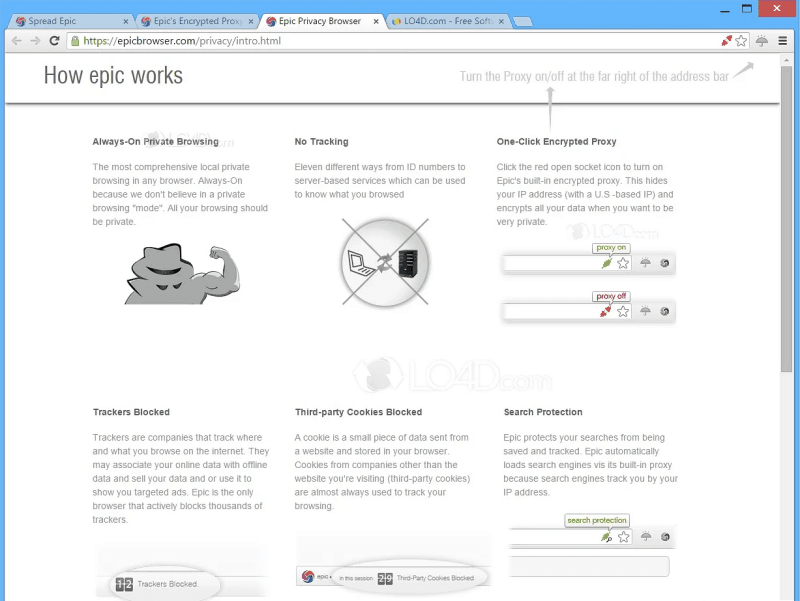
Epic Privacy Browser is ideal for users seeking untraceable browsing with all privacy settings enabled by default. It automatically blocks ads, trackers, and fingerprinting scripts, and offers a one-click encrypted proxy to hide your IP address and encrypt your internet traffic. Browsing history, cache, and cookies are erased immediately upon closing to prevent data leaks.
However, it lacks advanced features like password managers and bookmark syncing, which may limit its appeal to power users. Still, Epic is a strong choice for encrypted internet browsing and is among the most secure browsers for Android and desktop.
Part 2. 4 Open-Source Browsers for Customizable Security
Open-source browsers offer transparency and flexibility, allowing users to customize security settings to their needs. In this section, we highlight four of the best secure browsers that combine strong privacy protections with the freedom to tailor your browsing experience.
4. Mozilla Firefox – Edit Privacy Settings on PC/Mac
Pros: Fully open-source · Strong privacy features · Supports rich extensions, themes & developer options · Uses Gecko engine for diverse ecosystem
Cons: Fewer extensions than Chrome · Lower enterprise deployment rate
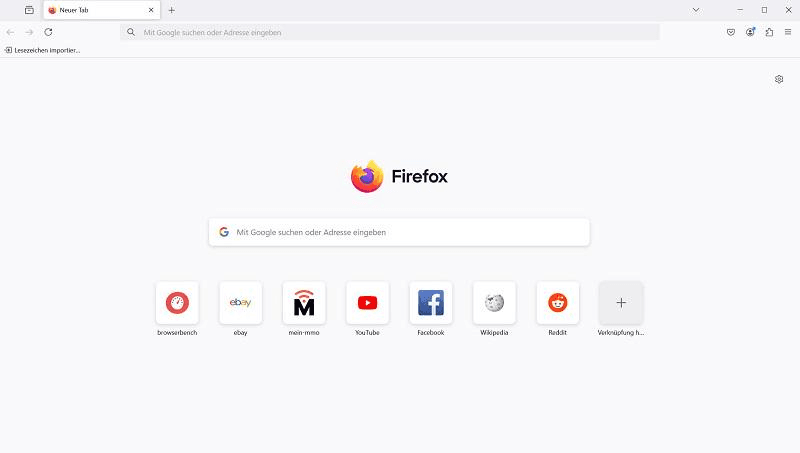
Mozilla Firefox is a top choice for privacy-conscious users due to its fully open-source nature and customizable security settings. Its transparent code enables continuous global review and optimization, helping it rank among the best antidetect browsers for users who want strong privacy controls. Firefox offers robust anti-phishing and malware protection, warning users against deceptive and harmful websites.
Additionally, Firefox supports a wide range of privacy-focused extensions like ad blockers and anti-tracking tools, allowing you to tailor your browsing security to your needs. Powered by the Gecko engine, Firefox offers a rich ecosystem and diverse options for customization, although its extension library is smaller compared to Chrome. For advanced users, Firefox is a reliable, privacy-first browser.
5. Tor Browser – Most Secure Browser for Private Browsing via Onion Routing
Pros: Blocks trackers & fingerprint scripts · Accesses blocked sites · Open-source & non-commercial
Cons: Slow speed · Steep learning curve for casual users
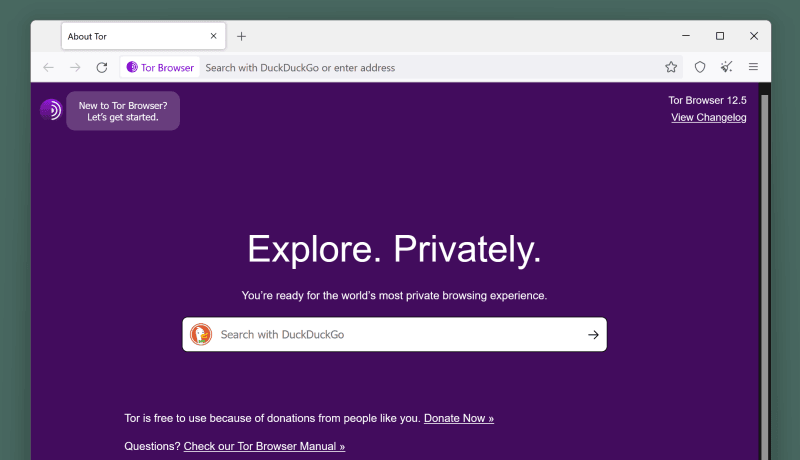
Tor Browser is designed for technically savvy or security-conscious users who need the safest internet browser for strong anonymity rather than everyday casual browsing. It routes traffic through multiple volunteer-operated nodes, effectively hiding your real IP and location. By default, it blocks third-party trackers and fingerprinting scripts, clears cookies automatically, and allows access to blocked websites including .onion domains, making it a trusted unblocked web browser option in restricted networks.
However, its multi-node encryption significantly slows browsing speed and disables most plugins to prevent fingerprint leaks, limiting convenience for video streaming or heavy downloads.
6. Iridium Browser – Chromium-Based Secure Browser for Advanced Users
Pros: Chromium-based, Chrome-like experience · Privacy enhancements enabled by default
Cons: No built-in VPN, ad blocker, or fingerprint protection · Potential delays in security patches
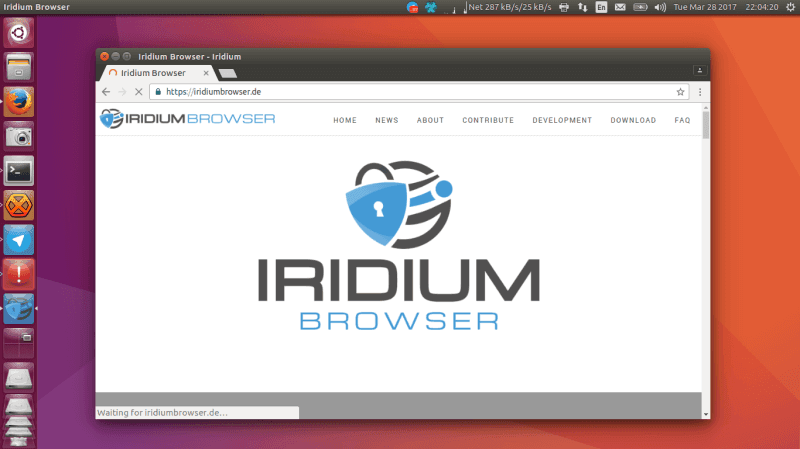
Iridium Browser suits privacy-conscious advanced users, developers, and security researchers who want to stay within the Chromium ecosystem. It offers a familiar interface and high extension compatibility while disabling Google trackers, autocomplete, and prediction services. No data is sent to Google servers, and it launches in a clean mode without background processes.
However, it lacks built-in VPN, ad-blocking, and fingerprint protection, so for stronger privacy, consider using BitBrowser, which includes these features. Iridium is among the safest browsers to use for those needing unblock blocked sites with Chromium compatibility.
7. Vivaldi – Highly Customizable and Private Web Browser
Pros: Highly customizable interface · Powerful multi-tab features · Built-in useful tools
Cons: Complex for beginners · Higher resource usage
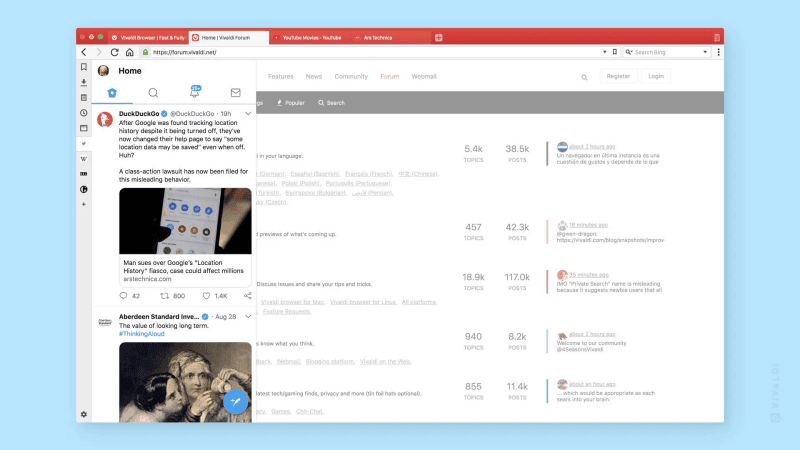
Vivaldi is ideal for content creators, heavy browser users, programmers, and efficiency enthusiasts who want complete control over their browsing experience. Almost every element—layout, themes, shortcuts, tab positioning—is customizable to suit personal workflows. It supports tab grouping, dual-screen tabs, and tree-style tab views to boost multitasking. Built-in tools like email, calendar, notes, and screenshot reduce reliance on third-party apps. Vivaldi also blocks ads and trackers, handles data locally, and supports Chrome extensions for a smooth learning curve. This makes it a strong option to browse internet privately with powerful features.
However, its rich features and customization options may feel overwhelming for new users and increase memory usage.
Part 4. 3 Mainstream Browsers That Require Privacy Tweaks
While mainstream browsers like Chrome, Edge, and Safari offer great usability and speed, they often require privacy enhancements to become truly secure. In this section, we explore three popular browsers and how you can tweak them to meet the standards of the best and safest browser for your needs.
8. Google Chrome – Popular but Requires Hardening for Secure Use
Pros: Fast page loading and stable performance · Richest extension ecosystem · Excellent cross-platform sync
Cons: Limited privacy controls · Weak ad and tracker protection
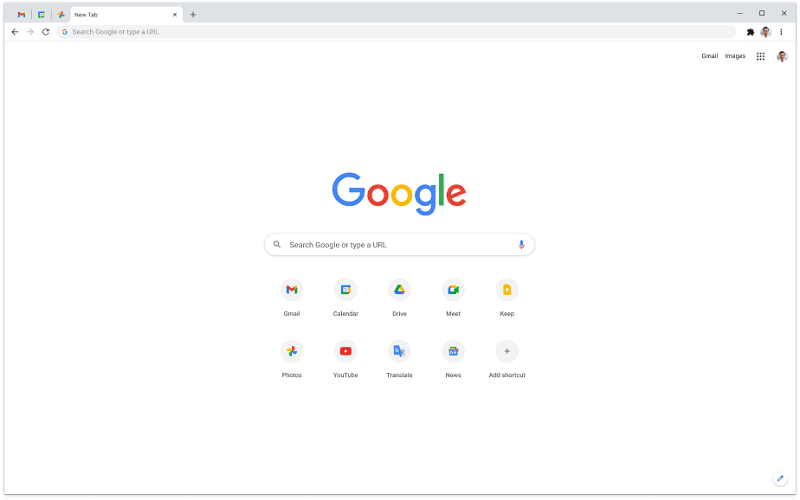
Google Chrome is favored by billions for its high performance, stability, and extensive plugin support. It's ideal for daily users and developers who rely on Google services and need a versatile browser with strong developer tools. Also, with its extensive extension market, you can install various extensions to achieve ad blocking and tracking protection, further enhancing the security and user experience of the browser.
However, Chrome collects user browsing data by default for personalized advertising and optimizing services. Therefore, you need to manually adjust privacy settings and turn off unnecessary tracking and data collection for better security. If you are very concerned about privacy and security, it is recommended to consider other safe browsers, like BitBrowser and Brave.
9. Microsoft Edge – Best Secure Internet Browser for Windows
Pros: Deep integration with Windows · Rich built-in features · Bing AI + Copilot integration
Cons: Tightly tied to Microsoft services · Occasional ads and content distractions
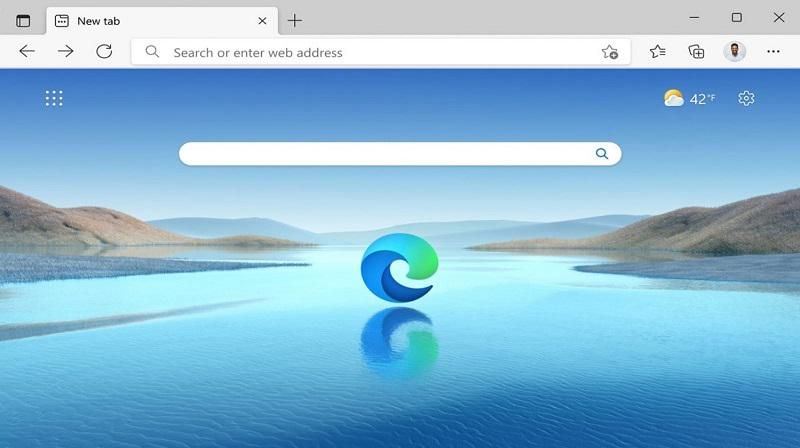
Microsoft Edge is a solid option for private browsing on Windows systems, especially for users deeply embedded in the Microsoft ecosystem. It leverages Windows' native security features like Defender SmartScreen and real-time monitoring to block phishing, malware, and suspicious sites. Edge is also optimized for speed and efficiency, making it ideal for Office users and those wanting to complete work directly in the browser.
However, due to its close ties with Microsoft services, some user data may be collected. If you seek tighter privacy control and data isolation, a dedicated browser like BitBrowser provides enhanced security with no OS-level integration.
10. Safari – Protect Privacy for Apple Users
Pros: Deep Apple ecosystem integration · Low power use & fast speed · Leading privacy protection
Cons: Apple-only platform · Slightly limited website compatibility
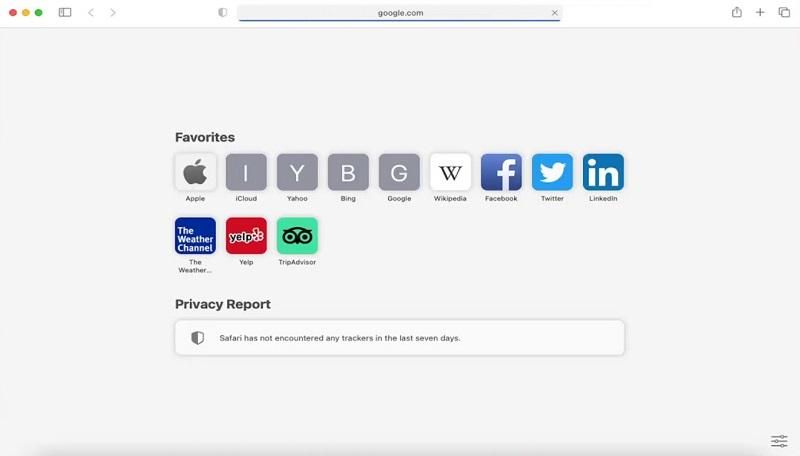
For Apple device users, Safari is considered the most secure browser for iPhone and macOS thanks to its advanced built-in privacy features. Intelligent Tracking Prevention blocks third-party trackers, while sandboxing technology isolates malicious scripts. Safari also provides detailed privacy reports, helping you stay aware of who's trying to monitor your activity.
While Safari offers strong privacy defaults, it does not guarantee full anonymity. Like other mainstream browsers, even in private browsing mode, your IP address isn't fully hidden. It's ideal for Apple users who value speed, battery efficiency, and a secure browsing experience without needing an extensive plugin ecosystem.
More Tips to Ensure Safe Browsing
Besides using the safest web browser, a few extra smart moves can really ramp up your privacy and online security:
•Avoid saving passwords in your browser to prevent potential leaks due to security vulnerabilities.
•Regular updates of your device's operating system are a must-have.
•Disable third-party cookies to reduce tracking by advertisers and malicious websites.
•Avoid doing anything sensitive, like online banking, on public Wi-Fi.
•Regularly clear your cache, cookies, and browsing history to erase your digital footprints.
•Only install browser extensions from reputable sources.
•Do not click on suspicious links or download unknown files.
Final Verdict: Which Is the Safest Web Browser
Choosing the best secure web browser depends on your individual needs. For untraceable browsing, BitBrowser stands out with its anti-detection capabilities, multi-account isolation, and customizable fingerprint profiles. If you value transparency and control, Tor Browser is the top open-source browser for customizable privacy and bypassing censorship. Meanwhile, users who prefer familiar tools and seamless performance may still opt for Google Chrome, provided privacy settings are properly hardened.
If you are looking to facilitate your e-marketing efforts or social media multi-account management with a secure browser, then BitBrowser is certainly an ideal choice well worth considering. Its powerful anti-detection features and fingerprint isolation technology can effectively hide your online identity, ensuring that your activities on the web are more secure and private. Why not try out BitBrowser today and start a safe and efficient journey on the web?
 BitBrowser
BitBrowser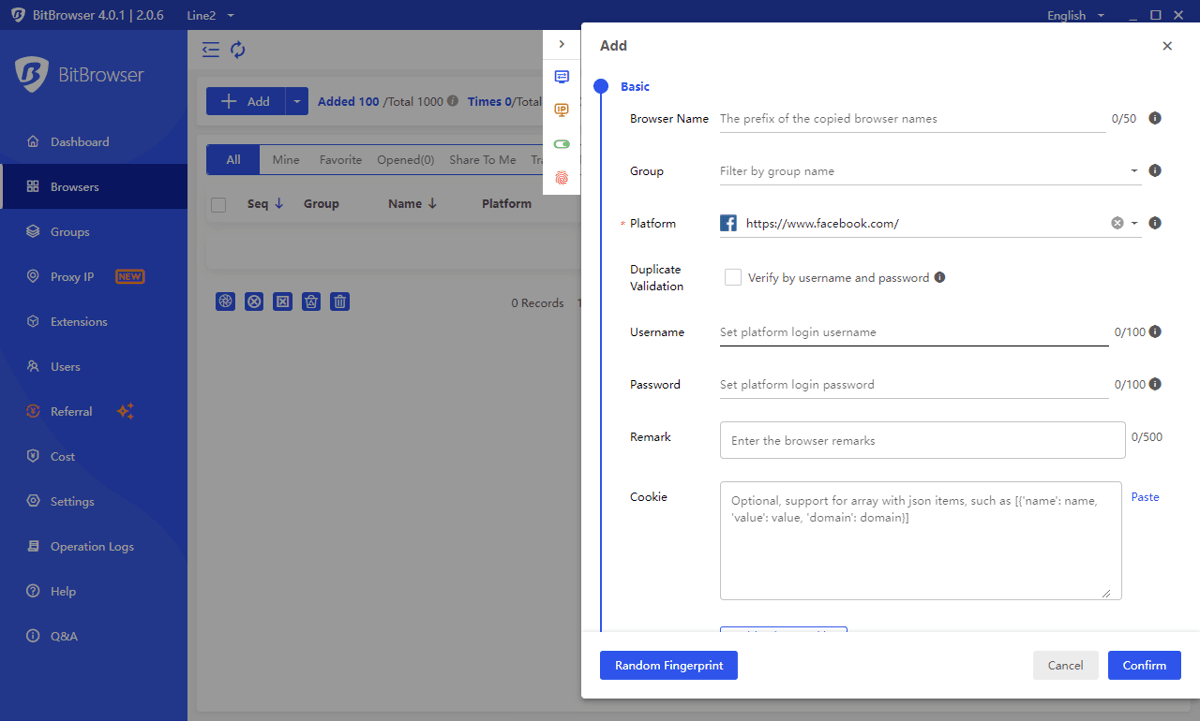

 Multi-Account Management
Multi-Account Management Prevent Account Association
Prevent Account Association Multi-Employee Management
Multi-Employee Management
